Psychosocial Support of Lymphoma Patient Undergoing Chemotherapy
VerifiedAdded on 2022/10/15
|10
|1160
|34
Report
AI Summary
This report focuses on the crucial role of psychosocial support for a 50-year-old man diagnosed with lymphoma and undergoing chemotherapy. It begins with an introduction to psychosocial support as a vital nursing intervention, emphasizing its impact on a patient's mental, social, emotional, and spiritual well-being. The report defines lymphoma, detailing its types, symptoms, causes, and diagnostic and treatment methods, particularly chemotherapy. It highlights the importance of psychosocial care, which encompasses psychological, social, and spiritual support, and the nurse's role in providing it. The report discusses the benefits of such care, including reduced distress and improved quality of life, and addresses physical, social, cognitive, spiritual, emotional, and mental health issues. It outlines essential components of effective psychosocial care, such as good communication skills, empathy, trust, and the provision of medical information. The report concludes by emphasizing the significance of psychosocial treatment in nurturing the minds of chemotherapy patients, reducing pain and stress, and promoting a better quality of life. References to supporting materials are included at the end of the report.
1 out of 10
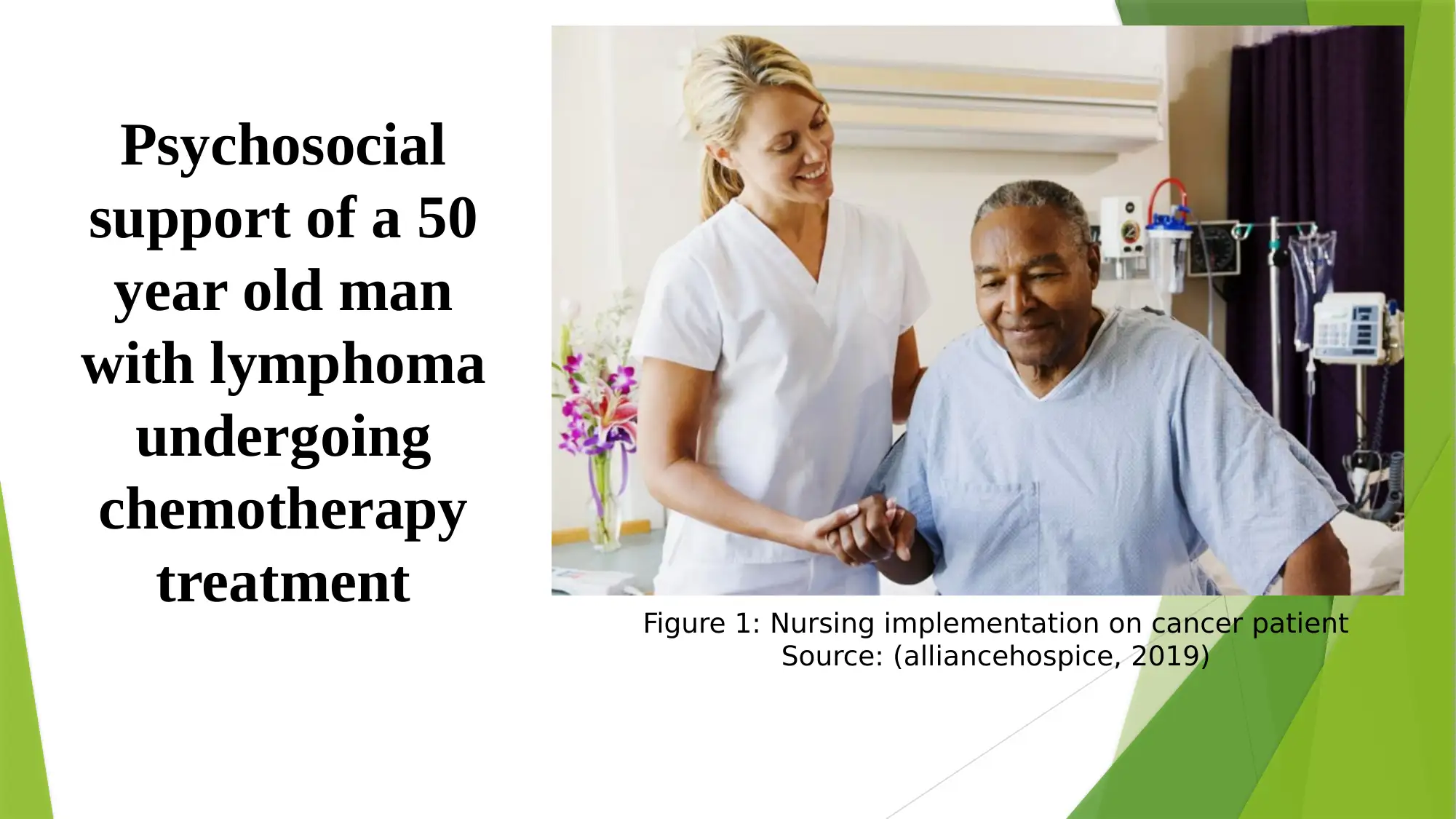
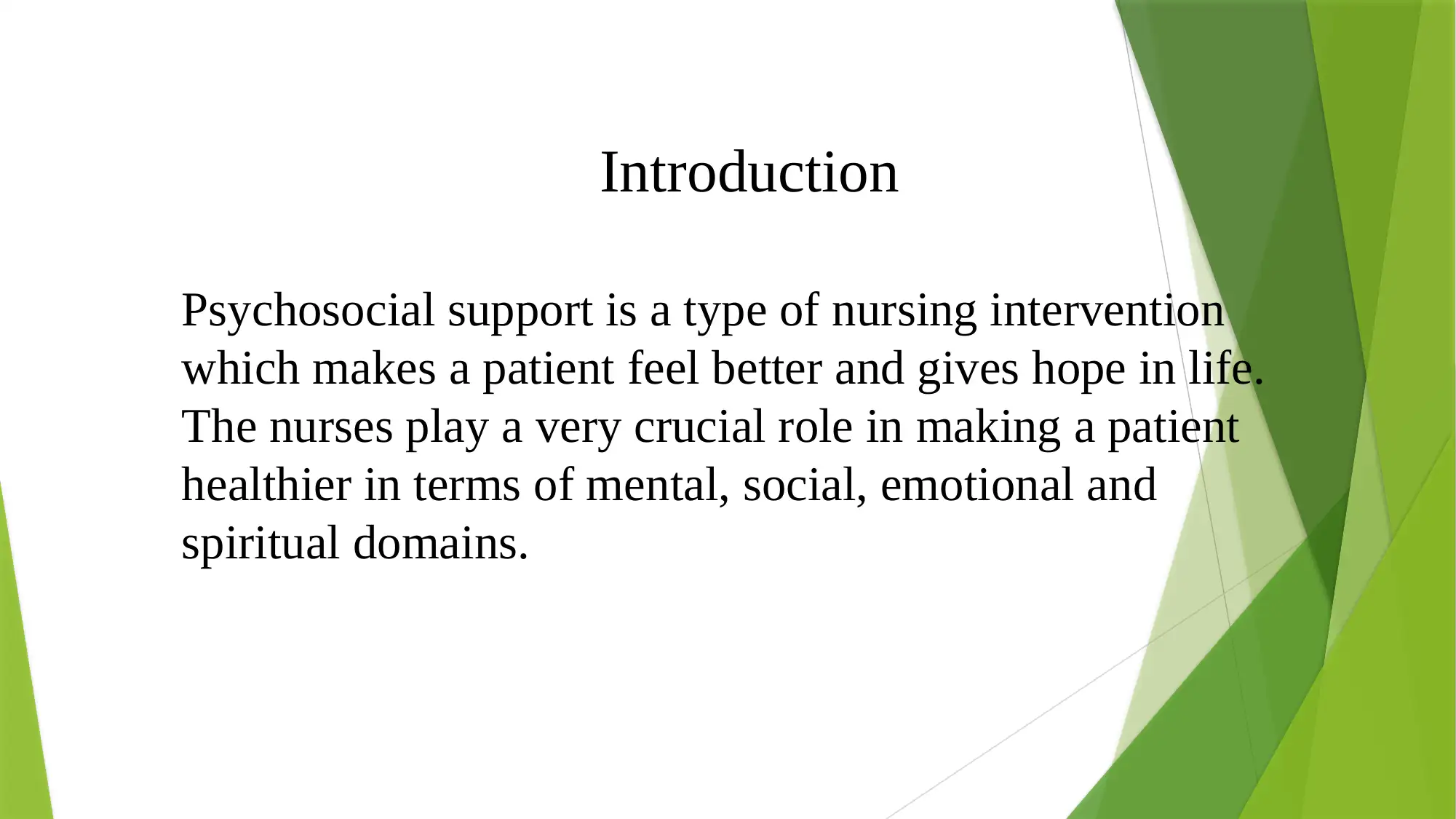
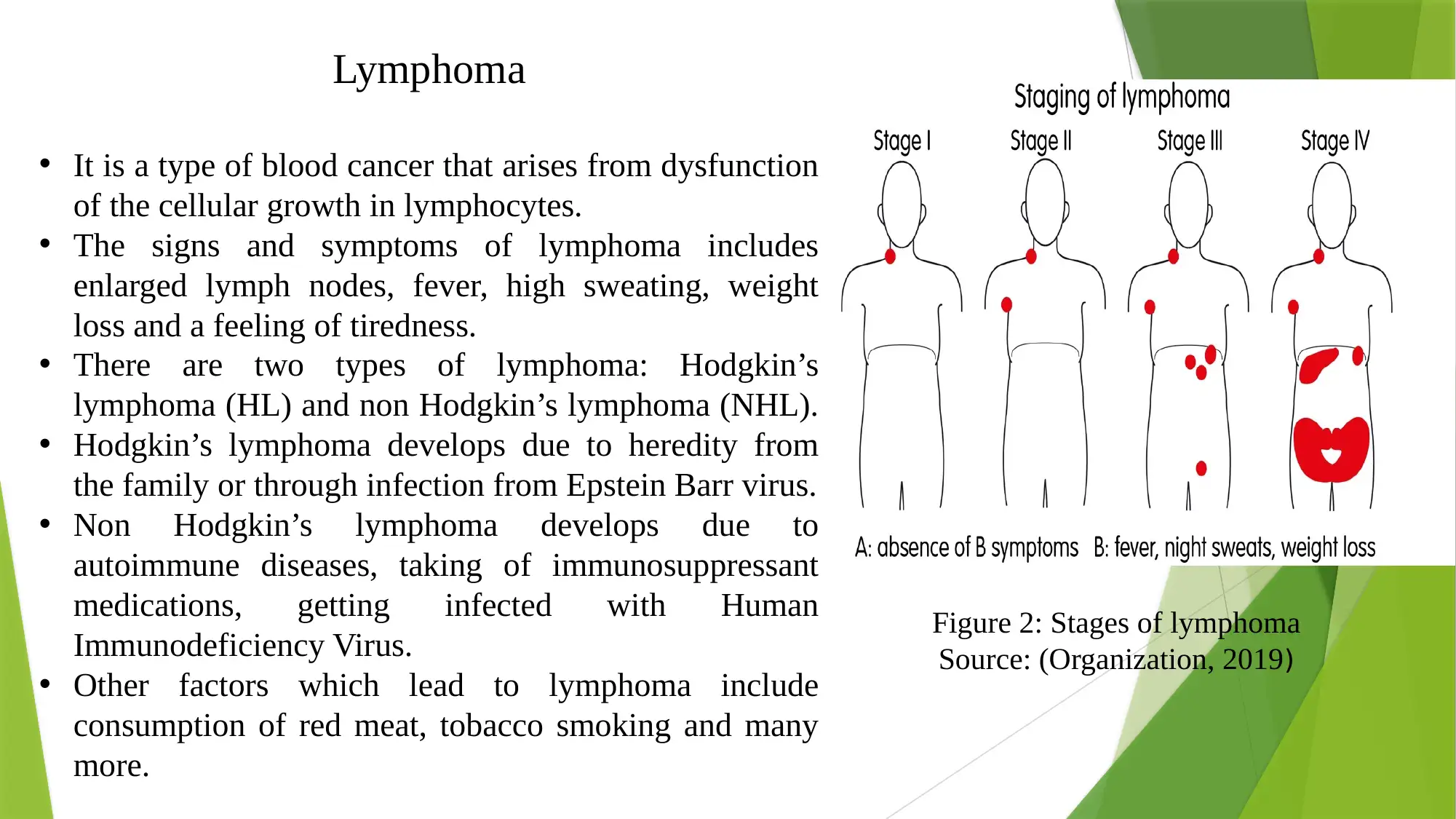

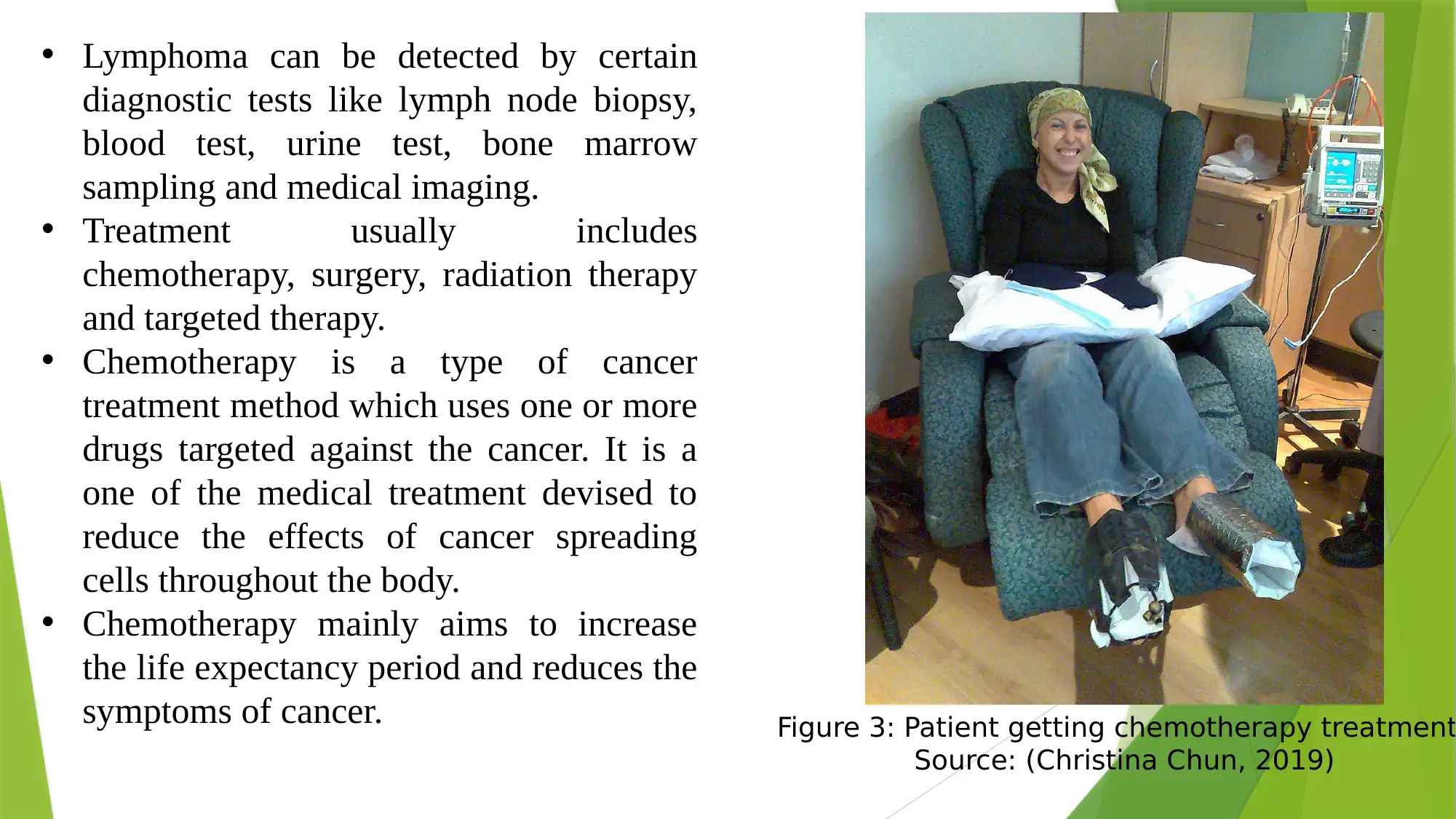
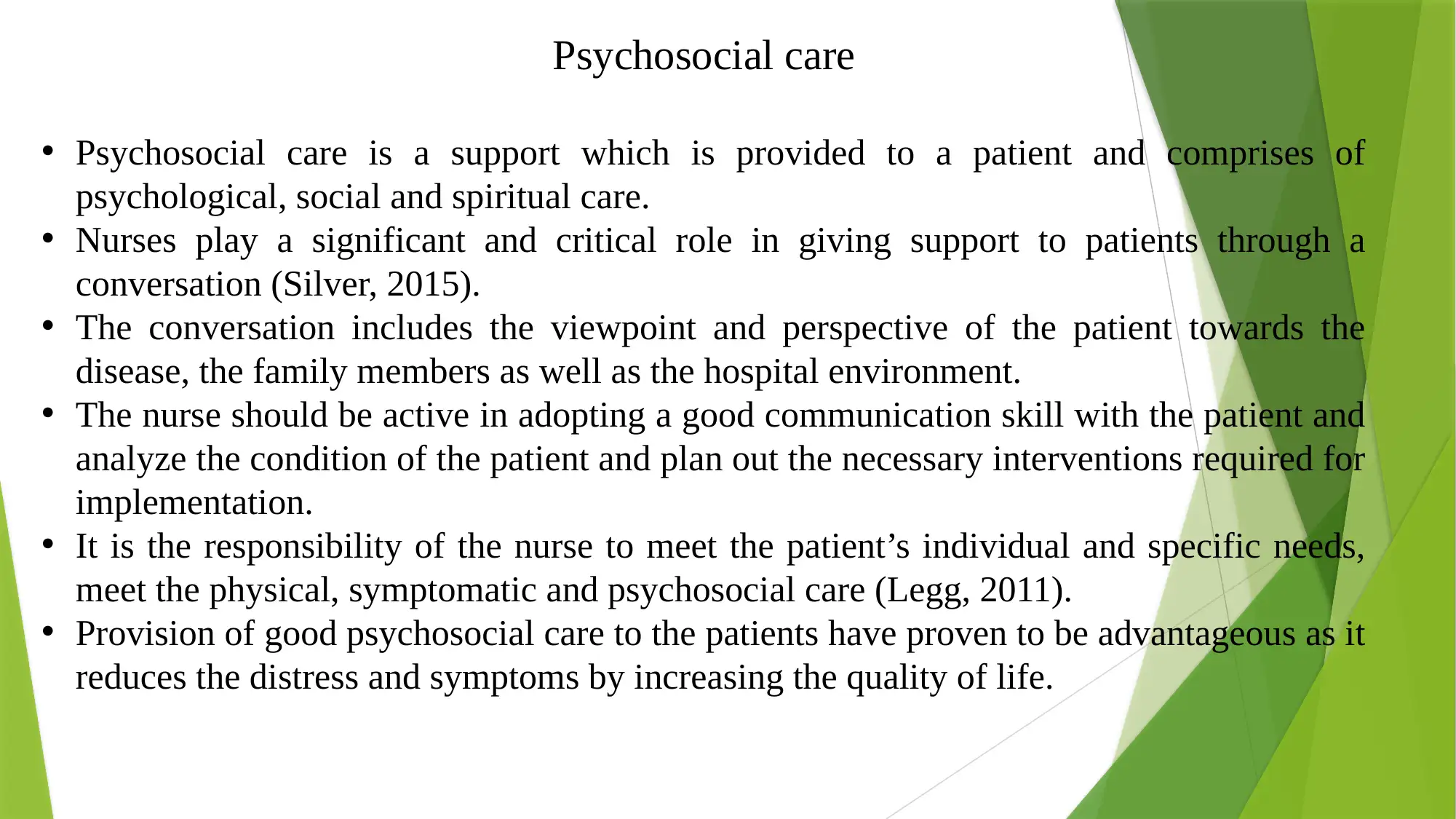
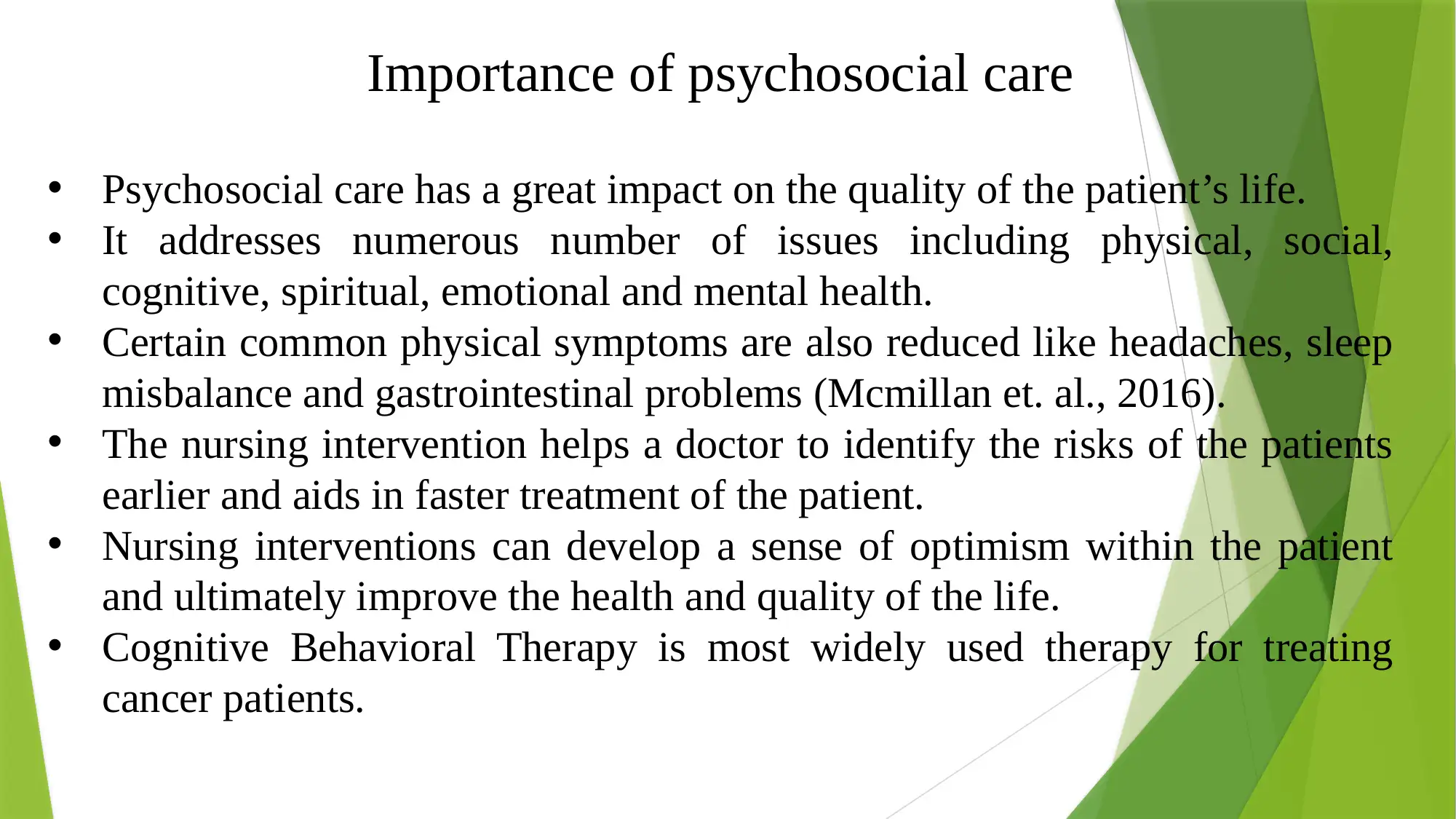
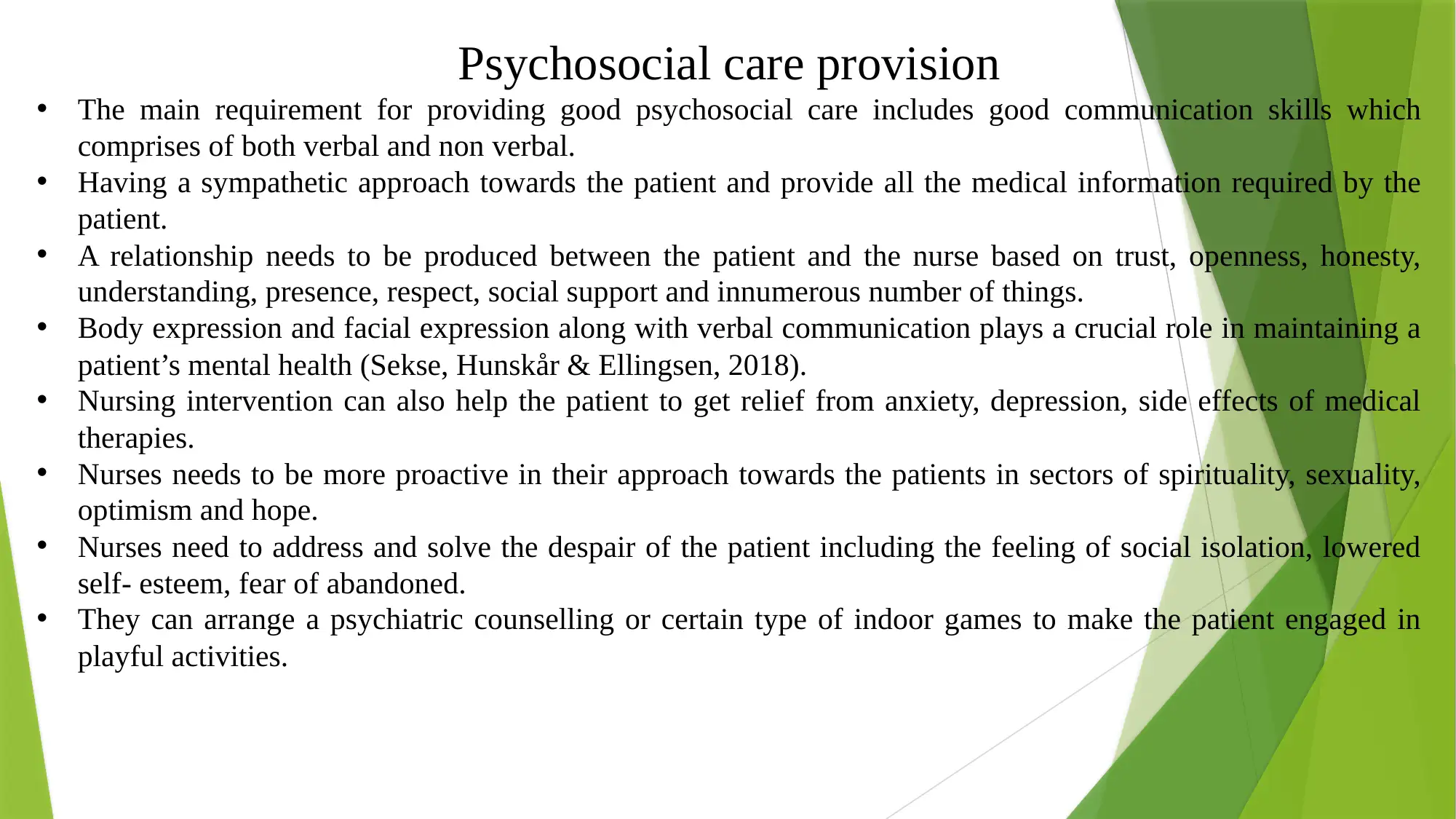
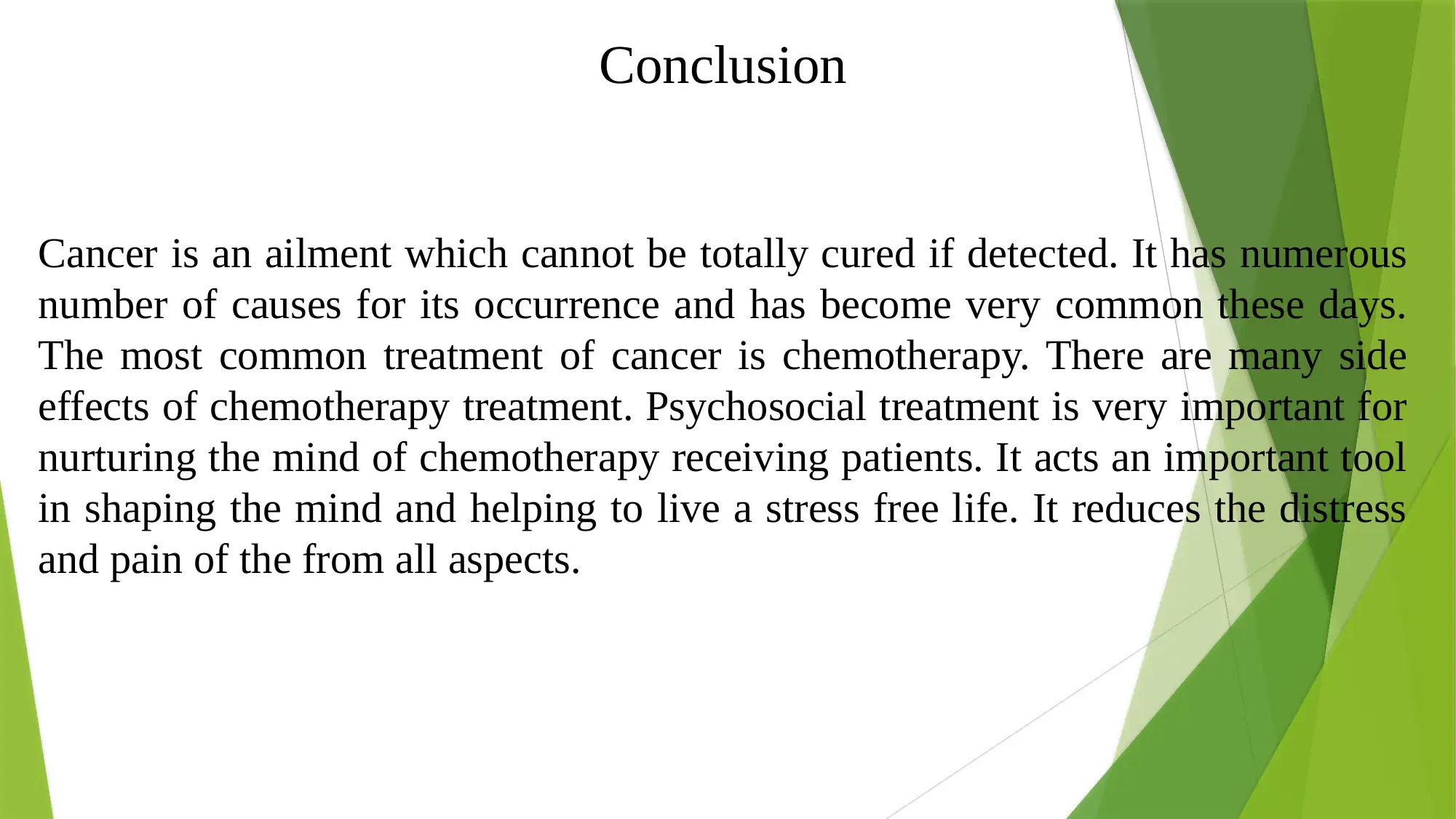

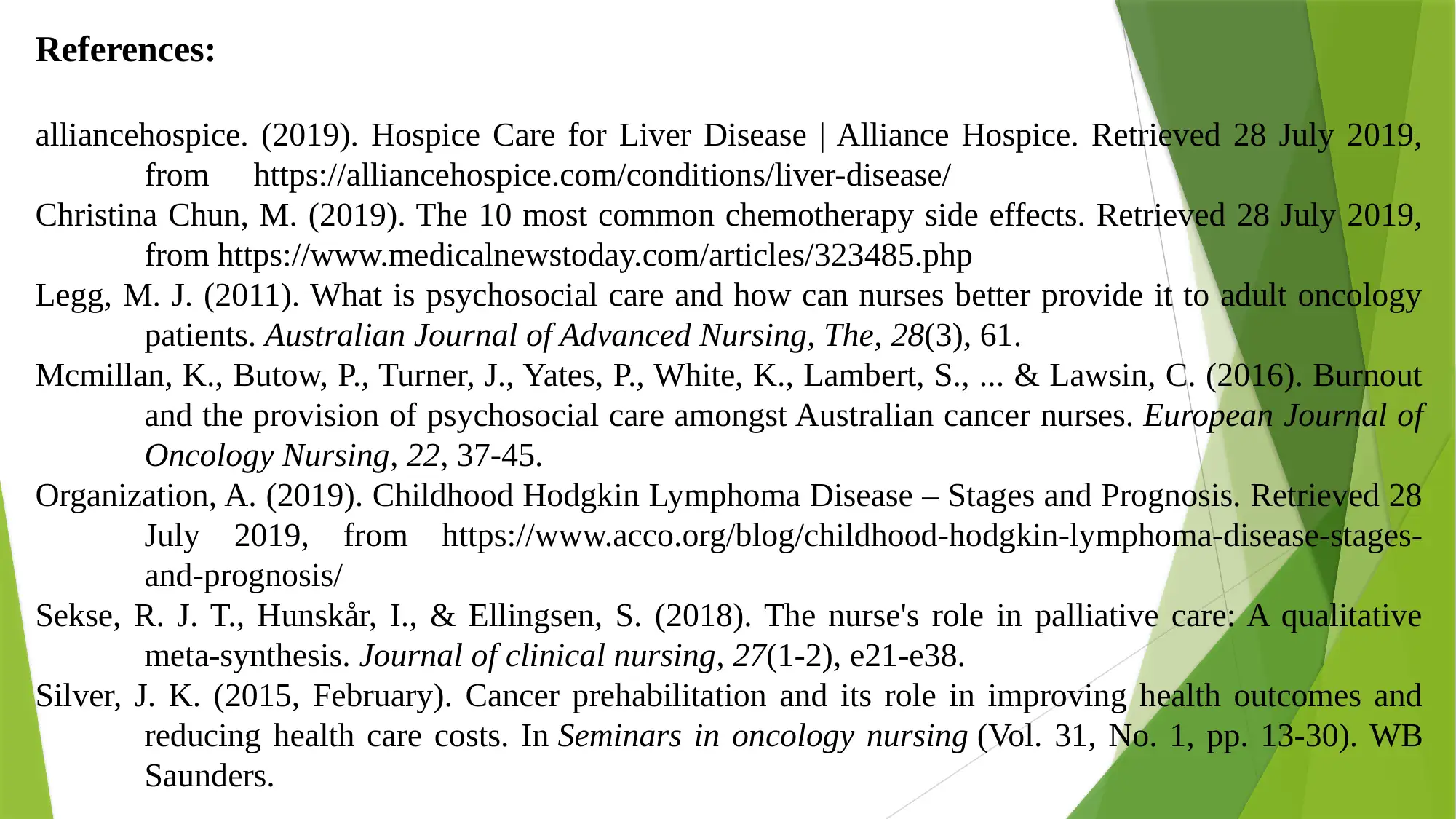






![[object Object]](/_next/static/media/star-bottom.7253800d.svg)